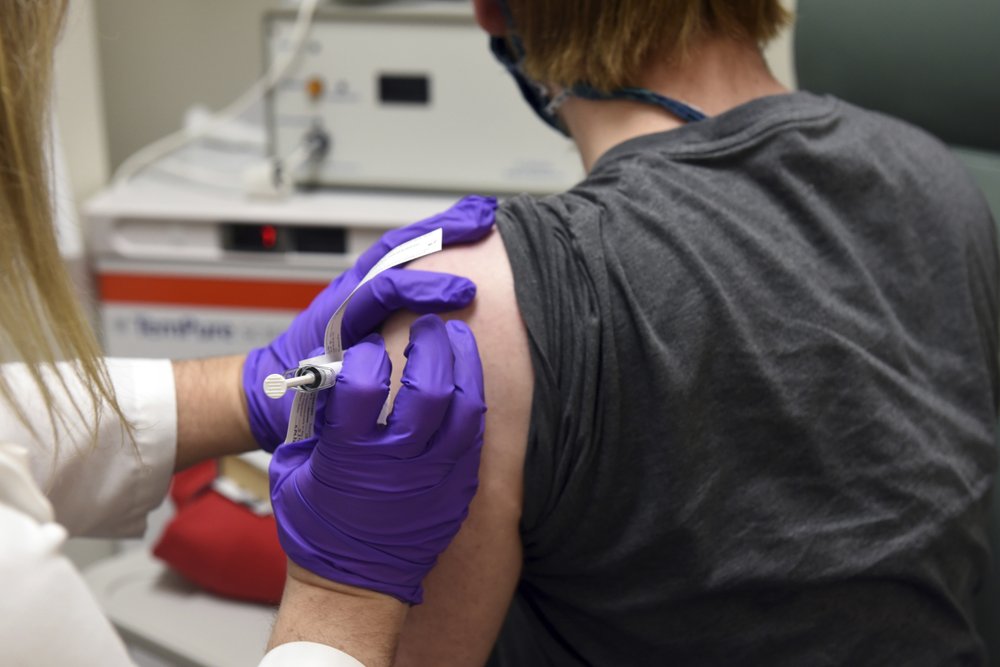By LAURAN NEERGAARD and HANNAH FINGERHUT (AP)
Only about half of Americans say they would get a COVID-19 vaccine if the scientists working furiously to create one succeed, a number that’s surprisingly low considering the effort going into the global race for a vaccine.
But more people might eventually roll up their sleeves: The new poll from The Associated Press-NORC Center for Public Affairs Research found 31% simply weren’t sure if they’d get vaccinated. Another 1 in 5 said they’d refuse.
Health experts already worry about the whiplash if vaccine promises like President Donald Trump’s goal of a 300 million-dose stockpile by January fail. Only time and science will tell — and the new poll shows the public is indeed skeptical.
It’s always better to under-promise and over-deliver,” said Dr. William Schaffner, an infectious disease specialist at Vanderbilt University Medical Center.
“The unexpected looms large and that’s why I think for any of these vaccines, we’re going to need a large safety database to provide the reassurance,” he added.
Among Americans who say they wouldn’t get vaccinated, 7 in 10 worry about safety.
“I am not an anti-vaxxer,” said Melanie Dries, 56, of Colorado Springs, Colorado. But, “to get a COVID-19 vaccine within a year or two … causes me to fear that it won’t be widely tested as to side effects.”
Dr. Francis Collins, who directs the National Institutes of Health, insists safety is the top priority. The NIH is creating a master plan for testing the leading COVID-19 vaccine candidates in tens of thousands of people, to prove if they really work and also if they’re safe.
“I would not want people to think that we’re cutting corners because that would be a big mistake. I think this is an effort to try to achieve efficiencies, but not to sacrifice rigor,” Collins told the AP earlier this month.





